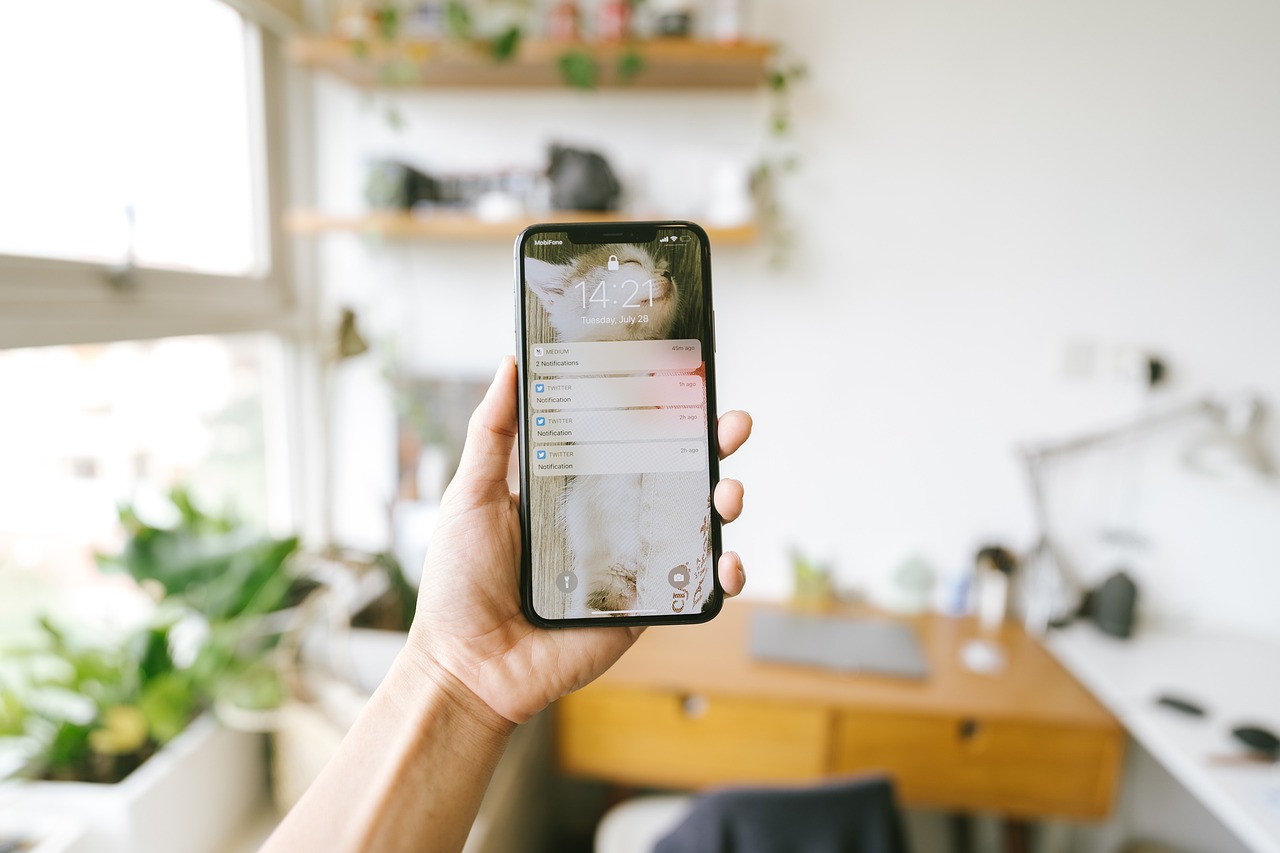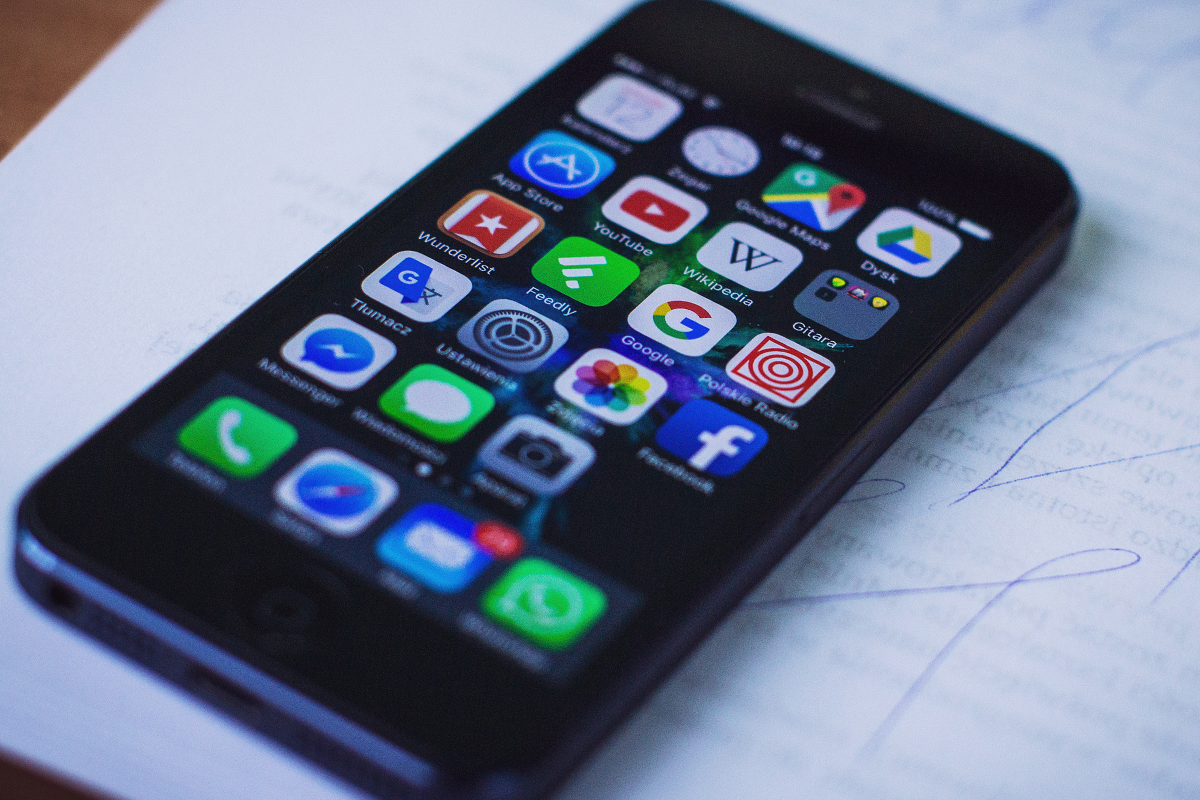Bad habits can compromise your phone. Find out what not to do.
If you use your phone a lot on a daily basis, you need to take some steps to keep your device running smoothly. However, many users don't follow simple precautions such as periodically clearing the app cache, updating the system, and turning off the smartphone.
It is worth remembering that breaking these habits will affect the performance and security of your smartphone and compromise its longevity. Therefore, continue reading and check out a list of tips for proper smartphone maintenance.

Clear the application cache
Cache is the memory of apps and browsers stored on your phone. These files are useful for speeding up the loading of apps, but they can accumulate in your smartphone's storage and affect system performance. Therefore, it is recommended to clear the cache periodically.
All you need to do is clear your browser's browsing history. This procedure is very simple and can be done on both iOS and Android systems. To clear the app cache, you need to go to your phone's settings and delete the files individually for each app.
Do not set a password
If you don't protect your phone With a password, you are more likely to fall victim to scams in case of theft or robbery. Because without a password, criminals can easily access everything on your device, including banking apps, documents, photos, contacts, and other sensitive information.
Other people may also use distractions to access privacy-invading content on your smartphone. That’s why it’s important to set a password on your device.
In addition to restricting access to your phone, a passcode can also store data and prevent your device from being wiped immediately after it is stolen. This means it can locate your smartphone, sound a warning from a distance, or back up your data if the device cannot be restored.
Do not use a pirated charger
It’s common for users to use fake chargers if their phone’s original charger is lost or malfunctions. But cheap things can end up being expensive. That’s because these types of parts pose a risk to the owner of the device and can permanently damage the battery. Even if you save a small amount in the short term, opting for a fake charger can cost you more in the future, whether it’s replacing the smartphone’s battery or the device itself.
On the other hand, original chargers are suitable for safe use, passing all the necessary certifications in the country before being delivered to consumers. There is usually a sensor that provides the correct charge as indicated in the manual and stops the flow of power when the phone reaches 100%.
Don't turn off your phone frequently
Many people tend to charge their phones all the time. They do this, especially by charging their smartphone overnight to provide 100% of power when they wake up. However, as with any electronic device with an operating system, prolonged use of a device without shutting down can result in too many processes running in the background and excessive RAM usage.
There are also processes to fix system errors that are done only by hard resetting the phone. Also remember that smartphones are “machines” and can wear out over time. When you turn off your phone, it closes all the apps, clears the memory provided by the smartphone during the day and extends the life of the device, interfering with its efficient use.
Additionally, having your phone on all the time interferes with your sleep, as notifications and calls can wake you up while you’re sleeping or trying to fall asleep. Therefore, it’s a good idea to turn off your device every now and then.
Exposing your phone to the sun for a long time
Like all electronic devices, cell phones have an ideal temperature for use. For example, according to Apple, the ideal temperature for the iPhone is around 35°C. When used in extremely hot environments, such as under the scorching sun at the beach, the temperature can increase and pose a risk to the life of the device and the health of the user. Therefore, do not expose your phone to sunlight for too long. Turn off your smartphone when in a hot environment.
Additionally, charging itself generates heat, so it is not recommended to charge your device in high temperature conditions. As a result, your phone may become hotter than usual and stop working. In some cases, overheating can completely damage the phone's components.
Battery discharge
Most cell phone batteries are lithium-ion batteries and have a limited number of charge cycles. One charge cycle corresponds to charging from 0% to 100% of energy, consuming it until it is completely discharged, and then reaching 0% again. Therefore, allowing your smartphone to reach 0% will reduce the battery's charge cycle.
Additionally, batteries can gradually lose capacity over several years. By the way, phones that appear with 10% of charge may actually have much less. It is recommended to charge your smartphone before the low power notification appears with 15% of charge and unplug it before it reaches 100% to prevent the charger from draining the battery.
Do not protect the screen
There are several screen protectors on the market that do a good job of protecting your screen from damage, such as Gorilla Glass. However, not all devices come with this type of technology from the factory. You can use a screen protector on your smartphone to avoid this problem. Made of glass, acrylic or other durable materials, it protects your device's screen from scratches, spills and minor bumps that can damage and render your phone unusable.
This type of protection is mainly used for devices carried in a bag or backpack, for items such as keys, pens, nail clippers and scissors. In addition to protecting your phone, the film option is much cheaper than replacing the screen and saves you potential headaches.
Backup frequently
Files stored on your phone, such as photos, videos, and documents, can be permanently lost if your phone is lost, stolen, or has data corruption. Remember to back up your device regularly to keep your information safe.
The backups can be done automatically (if scheduled in advance) using services like Dropbox and OneDrive to transfer these files to the cloud, or apps like Google Drive, iCloud and Samsung Cloud.
Ignore software updates
Software updates can fix security flaws, improve your phone’s battery life, and provide new features, so it’s important to keep your phone’s operating system up to date. Updates are released periodically, so it’s a good idea to check for system updates regularly or schedule automatic updates. Only do this when you’re not using your phone, as the process will take time and may restart your phone multiple times.
Even if your device is in good working order, missing updates can cause crashes and performance issues. Older phones may no longer receive updates, so keep an eye on the annual list released by manufacturers.



